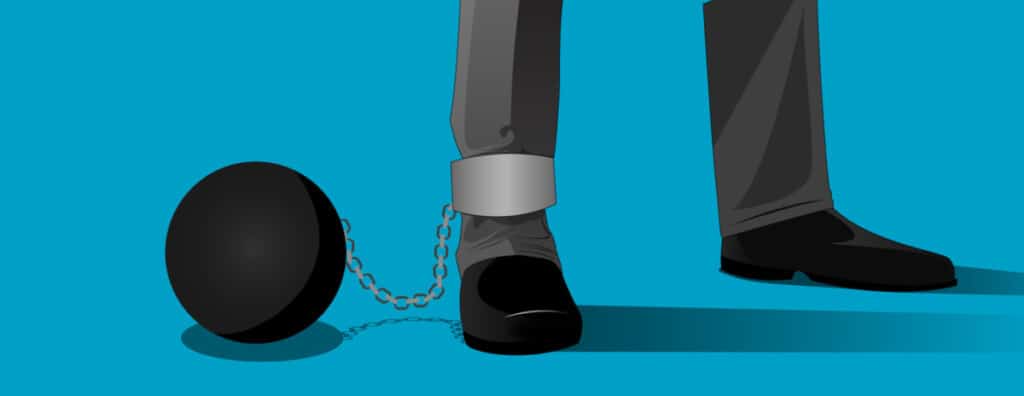Every moment of our lives, we have the option to either tell the complete truth or make up a bold-faced lie. Lies can cover true feelings, make it easier to get out of things we don’t want to do and make us look better. They can also hurt not just the person that we tell the lie to, but ourselves as well. A big reason to not lie is to avoid the downfall of getting caught. However, many will still wonder what the most important aspects of telling the truth are.
What are the reasons why you should always tell the truth? You should always tell the truth because:
- The Truth Will Always Come Out
- It Will Make Things Worse for You
- You Don’t Want to Lose Respect
- It Will Help Everyone Grow
- There’s a Bigger Issue That Needs Attention
- You’re Usually Lying to Yourself the Most
- Lying Holds You Back
Honesty is important because it can help get to the deeper meaning of any issues that are at hand. It can ensure you are confronting yourself so that you can continue on a path toward a growth mindset. When you’re honest with everyone, it might be hard at the time, but eventually, things will get better, rather than a lie where things could actually end up getting worse.
The truth is always going to be there, and a lie is a choice made to avoid this. We’re going to help you better understand why you should always tell the truth, starting with the most important reason of all.
#1: The Truth Will Always Come Out

We’ve been taught since we were kids that the truth was always the right choice, even when it might have been hard. As adults, we might not always reflect on the real reasons why lying is the worst choice. Lying is bad because (Carey, 2008):
- It hurts other people
- It is deceptive
- It creates more issues
- It is bad for your health
“The truth will always come out in the end” is a common saying, but it isn’t always, well, the truth.
Imagine a girl who tells her parents she’s going to a friend’s house when really, she’s going to meet up with a boy that she was forbidden to date. They ask her the next day if she had fun at her friend’s house, and she replies, “Yeah, we watched a movie together.” Fifty years later, both of her parents have passed away, and not once did she ever reveal the truth. They lived a long and happy life, and not once did the daughter’s falsehood cause any conflict in the family.
On one hand, it’s safe to say her lie was never revealed. On the other hand, maybe her father had noticed but didn’t mind, keeping it hidden from his wife who would have caused a huge fight. The daughter never knew about this truth either.
We can’t say for certain whether the truth will always come out or not, but we can know that there will always be a possibility of the truth coming out. It is the person who holds this truth who has the most power over what will or will not be revealed.
It can sometimes be easier to keep a secret yourself rather than trusting others to do the same. Think of how easily secrets can spread. How many of those secrets have been lies?
Then what are you to do? Share the truth and be branded a liar, or change reality to suit the false information? Create more lies to cover up any loopholes in the first?
The possibility of a lie coming out can be the most challenging part. The fear over the exposure finally coming to the surface can engulf a happy mind and cause immense stress.
Consider those who confess to crimes after not being able to live with the secrecy. Sometimes the lie can become the reality to the point that people don’t even realize their dishonesty anymore.
It’s best to avoid the lies because not doing so means you never know what’s going to happen in the end. You might dig yourself into a deep hole by not sharing the reality and getting lost in the cover-ups.
#2: It Will Make Things Worse for You

Lying is something that is thought to be the most hurtful to the person who receives the lie. In reality, the liar is the one who will end up hurting the longer they keep up their facade.
Sometimes we lie because we think we’re protecting ourselves. We envision a terrible outcome from what could happen if we were to share the truth. In order to avoid that, it can be easy for many people to want to turn to the lie as a form of protection.
Unfortunately, this will only hurt the one who spills the deceit from their mouths.
It can start first by affecting your mental health. When you tell a lie, you are instantly putting yourself in a stressful situation. Sometimes it feels like you’re going to be fine in the end, and that’s why you lie. But really, you are causing more worry in your mind. You’re creating a focal point for anxiety to fester and blossom.
Anxiety can take a huge toll on not just your mental health but also your physical health. You might grind your teeth. Perhaps you pick at your fingers or at scabs on your face.
Some people even pull out their hair when they are under an intense amount of stress. It can affect you internally. You might feel sick to your stomach or have constant headaches from the anxiety.
It’s not necessarily the lie that will automatically begin manifesting itself through physical ailments; it’s the stressful life that can be created once a lie is told.
To see more ways that stress, fear, and anxiety can negatively affect your overall health, check out the video below:
Lying can also affect your sleep. You might have trouble getting to bed and falling asleep at a certain time because worried thoughts over the lie are consuming your brain.
If your sleep is messed up, then this will also negatively affect your overall health. You might struggle to pay attention and focus at work. Maybe the stress from everything is causing you to overeat or skip the gym. Whatever might be going on in your life, if we are not properly managing our mental health, it will reflect on our physical health much more than you would ever be able to imagine.
You will lower your self-esteem and lack confidence if you are constantly worried about a lie coming to the surface. It can make you very defensive. It can create this sort of blockage to any kind of criticism or comment that can be taken as something used against you.
When you are holding on to a lie, then that means that you are protecting something. There is a morsel of truth that you are desperately trying to cover up.
When you are acting in defense against that, this will show in other people. Somebody might make a completely unrelated comment to you, but your brain connects it back to the lie that you’re covering up, and this leads to a stressful thought. Then you believe that the other person might be out to get you.
It makes it hard for us to be ourselves because our true self is the person that knows the lie. The person that everybody else knows is the one who is living that lie.
It can be really hard to be comfortable with yourself and have high self-esteem when you’re so terrified about the truth coming to the surface.
#3: You Don’t Want to Lose Respect

Some lies are going to be bigger than others. When a friend asks, “Do I look fat in this dress?” you might lie a bit because you don’t want to hurt her feelings. When someone asks, “Can you help me move this weekend?” you might say that you’re busy with something else to avoid the extra labor.
When considering bigger lies that might end up hurting someone else in the process, you’ll want to consider filling out this chart below to determine if the lie is really going to be worth it in the end. It might seem like the lie is better, but really, it might just be easier at that moment.
| The Lie | |
| The Truth | |
| Who is being hurt | |
| The reason for lying | |
| Consequences of the truth | |
| Consequences of the lie | |
| Benefits of the truth | |
| Benefits of the lie |
Trust is one of the most important things you can have in a relationship. If there is no trust, then there is no dependency that others will want to rely on. There is no agreement between the two people that they can depend on the other person. Trust isn’t something that always is discussed upfront with others. Most of the time, we just have this underlying understanding with another person where we know that we can count on them to support us or keep a secret.
As soon as you show the other person that you have lied just one time, it can destroy that trust. They will start to wonder, “If they lied about that, what else might they have lied about?”
Lies are like things buried under the sand. You usually don’t know that you are walking on top of something when you’re strolling along the beach. As soon as one tiny little protrusion sticks up from the surface, you can pull it up to see that something giant has been hidden under there all along.
While you might have only lied just one time, that still doesn’t assure the other person of anything. You might beg and plead with them letting them know that truly, deeply, you only lied once. They might even forgive you for that lie, but they will still struggle to believe if that really was the only lie that you’ve told. They can forever wonder if you are still hiding something bigger. Other people will also question if you even told the entire truth about the lie, or if you just gave them a glimpse at something deeper that you tried to cover up.
A lie isn’t just a lie. It’s not just a sentence, a hidden object, a secret passed between others. It is an action. It is a lifestyle choice. It’s not just the lie that is hard to accept. Others will struggle after you’ve lied to them because they won’t know if there are other parts of yourself that you have hidden.
If you’re good at lying about where you were the night before, maybe you’re also good at lying about whether or not you truly love them.
Lying can really mess with a person’s head. It can make them doubt you and everything that they know to be true.
More people will be able to tell if you are lying than you’d think. You might have thought you got away with a lie, but maybe the other person is just not as great at confrontation. They could seemingly accept the false information that you fed to them, but perhaps they already know the truth anyway.
This video shows how easy it is to see if someone is lying:
It’s a reminder that even though someone won’t blatantly call you out when you’re lying, they can still likely pick up on the half-truth you’re sharing. Don’t risk someone losing respect for you because of a lie. Take an honest way to ensure your relationships will continue in the right direction.
#4: It Will Help Everyone Grow
A lie is something that is told usually to cover up an issue. Nobody lies just for fun. Perhaps there is that individual who lies about having more money, nicer things, and greater experiences than other people. But still, there is an underlying issue there.
When we begin to choose the truth over a lie, that is when people will actually be able to grow rather than focusing on trying to bury the actual issue.
Lying can just make things worse. It can destroy trust in a relationship and ruin the bond that two people have managed to create. Telling the truth is important because it will help everybody to grow. When you learn how to properly express your feelings and share those with other people, it creates a closer connection.
Perhaps you decide to lie to your significant other and tell them that you’re not upset after you’ve had a fight. Maybe you are still harboring some resentment, but you don’t feel like talking about it or getting into an argument, so you just tell them that it’s all good now.
Unfortunately, this just causes that to fester inside of you. Your significant other isn’t going to be reflecting on this issue anymore. They’ve moved on now because they think that you’re fine. The issue might come up again and you have to go through this experience all over. If you had told the truth from the start, it could have helped show the significant other your perspective, giving them the opportunity to grow from it.
In reality, we need to confront that issue so that you can share it with the other person and come to a healthier conclusion in the end rather than just saying, “I’m fine,” when you’re actually suffering.
You can talk things out and get to a place where both of you can grow. The issue that many people have is that they don’t know how to effectively communicate with others. In order to properly share your feelings and discuss the truth in a way that won’t cause an explosive issue, you have to check in with how you are sharing your words.
Let them know why you decided to lie. Don’t just reveal the lie and have them suddenly blame you for that. You want to approach the topic to get to the root of the issue. These are a few phrases that you can say in order to help smooth over a conversation and keep it civil so that the both of you end up growing closer together in the end, rather than letting a lie tear you apart (Smith, 2017).
| Why You Lied | How to Approach it |
| I lied because you’re always so mean to me. | I feel a little uncomfortable talking about certain subjects, so I didn’t tell the truth because I didn’t want to be judged for my feelings. |
| I lied because I didn’t want to make you sad. | If you had known the truth, it might have made you feel bad about yourself, and that’s what I wanted to avoid. |
| I lied because what I did was bad. | I made a questionable choice and thought ignoring that was better than revealing what I had done. |
It’s better to approach the topic by sharing the “why” and also stating that you didn’t tell the truth rather than blatantly saying, “I lied.” It’s never going to be easy, but open and honest communication is essential for a healthy relationship and a happy life.
#5: There’s a Bigger Issue That Needs Attention
Truth is like a seed. When you lie, you bury that seed deep into the ground, but that truth is going to continue to grow and grow. It might take it a while to get to the surface, but eventually, it will. Once it is at the surface, it has likely collected to become even bigger than it would have been if you just would have planted the seed of truth at the surface from the start.
Lying only continues to cover up something that needs to be confronted. Imagine that you have an infected cut on your arm. You can put a Band-Aid on it, but if you are not properly caring for that infection, it’s going to spread to every part of your body.
A lie is like a Band-Aid on top of an infected wound. It might make everything seem like it is okay, but there is a deeper issue going on. A common lie we have is that we tell our friends, our family, or whoever we are closest to that we are fine and that we are happy when we actually are not.
It’s important that we begin to confront the truth to address these underlying issues and help everyone grow along the way.
To further explore this topic, this video is a great one that gets into the details of the psychology of lying:
#6: You’re Usually Lying to Yourself the Most
We lie to other people because we don’t want the truth to come out. In reality, we are lying to ourselves the most. We are talking to our own brains and convincing them of a truth that is not real. You can lie to your coworkers, to your friends, and to the person that you share a bed with every night, but the person that we end up lying to more than anyone else will always be ourselves.
Oftentimes, this issue is something that deals directly with yourself. Perhaps you lie to other people about how much you enjoy your job. Maybe you continue to go on about how great it is, always talking about the fun work parties, the many benefits, and your huge paycheck. Other people might not really care whether or not you like your job. They have their own lives going on, and while they are happy for you, it really doesn’t concern them one way or another.
You might continue to talk about this as a way to validate your own perspective.
After a while, it’s not even about convincing other people that you’re happy; instead, it’s about convincing yourself.
The more that somebody talks about something and has to validate it to others, usually, the more that they have to validate it to themselves.
When you want to lie, you have to look deep inside yourself and ask if there is a truth you are trying to keep from your own mind (Kornet, 1997).
#7: Lying Holds You Back

For all of the other reasons that we discussed above, lying is only going to hold you back. It’s going to make you sick because you’ll think about how the truth is going to come out. It’s going to make things worse for you because it could lead to stress and anxiety. People might lose respect, and you can destroy relationships.
You might cover up the actual issue that needs to be addressed.
The truth is hard. It can be scary, and it can be messy. However, the truth can also help release us from the restrictions we’ve placed with the lie.
Life is all about growing and becoming a better person tomorrow than the one that you were yesterday.
Lying is going to keep you stuck in that mindset that you had when you began the actual lie. Lying is like a weighted chain that keeps you trapped to the ground. You will be stationary, whereas truth can help you actually grow. You can continue to pretend like everything is fine and nothing is wrong by creating lie after lie after lie.
Or you can tell the truth, the first time, deal with all those messy consequences, and then put that behind you as you move on. A lie is like taking the hard emotion or that challenging issue and putting it in your back pocket.
It might not be right in front of you, but it will always be right behind you. It will always be there with you. Only the truth can be left behind. Yes, the truth could negatively impact you for a month or even a year at a time. However, it will eventually help to release you.
For example, imagine a husband and wife who have been together for five years. They had a great relationship at the start but unfortunately, things have gotten messy.
They’re constantly fighting and neither one really wants to be with the other person. However, they continue to lie to themselves and pretend as though everything is good because they have a young child, and they are too afraid to be alone. They continue to live unhappy for the next 15 years. Eventually, one of them cheats on the other. Everything gets messy, and they divorce.
They could have revealed the truth 15 years ago and released themselves from that situation.
They might have gotten a divorce, and it would have been ugly for a year or so. It was messy, they fought, and their families were upset. It did put a little pressure on the child. However, after two years, everything settled down, and they are all completely happy. They’ve each remarried and started a brand-new life with people that they truly love.
The child is thriving because they have two different homes filled with people who love them. It was messy, and it was awful for those two years, but now it is better than it ever could have been in the other situation where they were miserable for those 15 years.
The truth can be bad, but lying will always be worse.
Related Questions
To lie or not to lie is a dilemma we might often find ourselves in. It’s a good topic to explore more of, so check out these further questions to get the most out of your perspective on lying.
Is it lying if I don’t say anything at all?
You might wonder if you avoid responding to a question rather than telling a lie, is that being dishonest? That can be dependent on the situation. If the truth is unnecessary, like an employer asking why you left your last job, you can gloss over the truth and say you were let go, but you don’t have to go into the dirty details of how you were fired for showing up late three times in one week. Question who you are hurting by hiding the truth. Anytime the truth is intentionally hidden, it is dishonesty. It’s ok to not get too deep into the details of a situation, but when someone is intentionally seeking out the truth and it is intentionally hidden, that can be just as bad as lying.
Will, there ever be a time when telling a lie is good? You might find yourself in a situation where lying is going to help others. Perhaps you’re working in a bank and a robber comes in, so you lie and say you’re the only one there to protect coworkers in the back. Maybe bullies in school are asking something personal and you lie to make sure they don’t attack you or a friend. If the lie will protect someone’s life or health, you might consider lying. Eventually, you will want to share the truth, but safety is important, so it’s ok to make sure you are protecting others. There are a few serious situations where a lie could help act as a defense, but for the most part, it’s best, to be honest.
